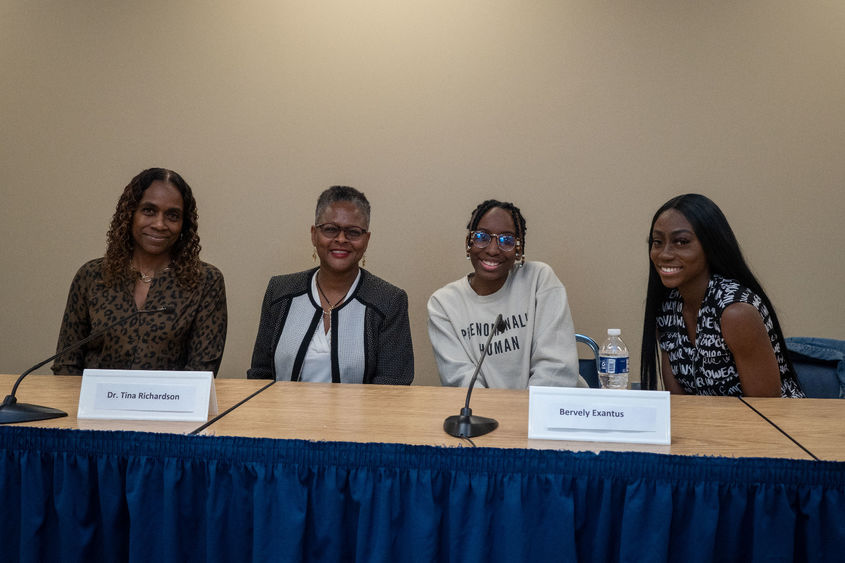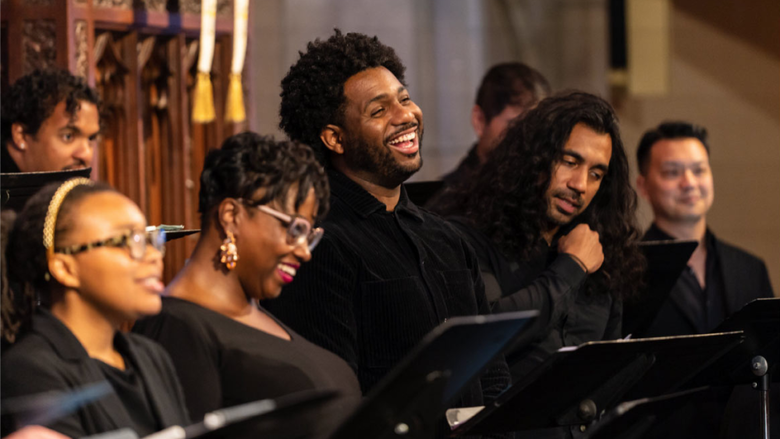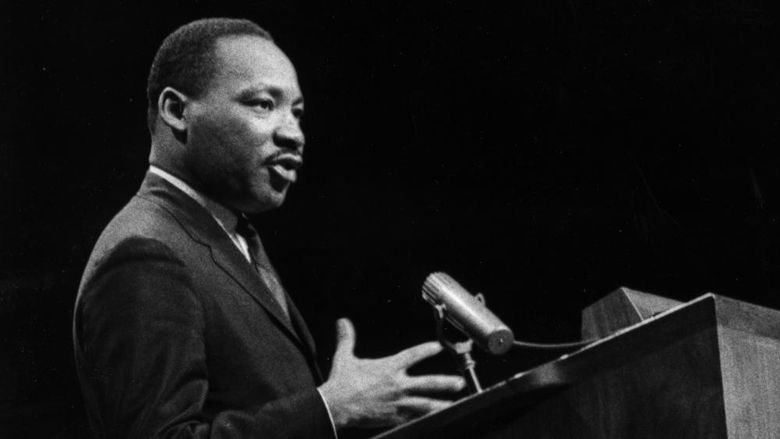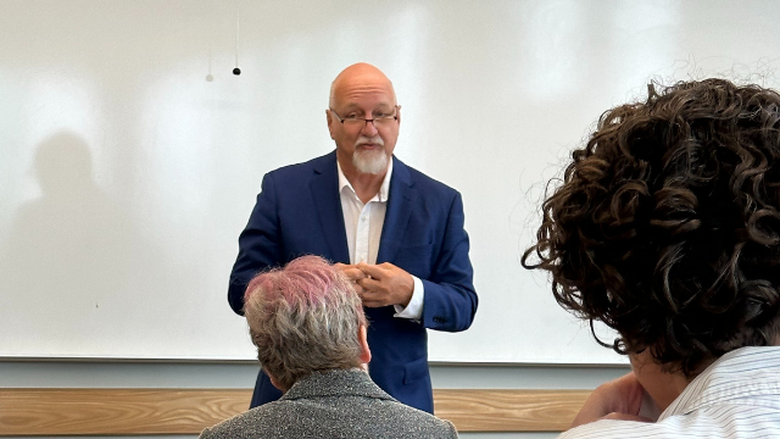
Penn State Lehigh Valley recently held a Women of Color Panel as part of the campus's observance of Women's History Month. Pictured from left are panelists Lizbeth Johnson, director of information and instructional technology, Chancellor Tina Q. Richardson, and students Bervely Exantus and Rebecca Ganthier, president of PSU-LV's Black Student Union.
CENTER VALLEY, Pa. – Furthering its commitment to diversity, equity and inclusion, Penn State Lehigh Valley hosted a Women of Color Panel on Wednesday, March 30.
Sponsored by the Office of Student Affairs, the Black Student Union and the All In Committee, the panel discussion was held as part of the campus’s observance of Women’s History Month. The panelists were Chancellor Tina Q. Richardson, Director of Information and Instructional Technology Lizbeth Johnson, and students Rebecca Ganthier, president of the Black Student Union, and Bervely Exantus.
During the discussion, the panelists took turns sharing personal anecdotes – many of them painful – to illuminate racism in its various forms and stress the importance of dialogue as a means of furthering race relations in higher education and the community at large.
Richardson said that as a Black woman she’s had to contend with racism in a number of ways during her many years in higher education. For instance, shortly after landing a position at another university, she was introduced to a colleague who laughed when told that she was a new faculty member.
“He said, ‘Surely, you’re joking,’” Richardson said. “To this person, it was laughable, it was unbelievable, it was a joke, that I was a member of the faculty. And this person never apologized. That was the beginning of 20 years of receiving different versions of that.”
Johnson spent the early part of her career in the engineering field, where she was often the only woman of color in her work environment.
“For me, the racism I’ve experienced has been more systemic and indirect,” she said. “The way I try to look at it is, maybe this person is a racist, or maybe they’re just a jerk. I take it off me and put it back on the person. That’s how I’ve tended to maneuver through this world.”
Exantus, whose family moved to the United States from Haiti when she was 3, remembered a trip to the Jersey shore a few years back. On the boardwalk one day, she and her sisters went into a store, where the owner proceeded to follow her around the entire time. Then, upon leaving, her sister was asked by the owner if he could look through her shoulder bag.
“I laughed with my sister, but deep down I thought, ‘There’s no way that just happened,’” Exantus said.
About to complete her bachelor’s degree in health policy and administration (HPA) in just three years of coursework, Ganthier recounted her high school years, when she constantly had to overachieve to earn grades that white students would earn with seemingly a fraction of the effort.
“It’s really something I take into account, whether in school or at work,” Ganthier said. “It’s just something I’ve dealt with on a regular basis.”
Despite these negative experiences, the panelists all stressed the importance of resilience in the face of adversity, and how those experiences have ultimately made them stronger people.
A strong support system also is crucial.
“The women in my family are all very accomplished and encouraged me to go above and beyond,” Johnson said. “My advice is to find someone who can help you on your journey.”
Richardson said she feels privileged to be in the position she’s in, and how important it is for her to use that privilege to help others.
“I am who I am today because of a strong African American network. I rely on the generosity, wisdom and experience of others,” Richardson said. “Persistence, determination and success are what drive me. I’m good enough every day, and I try to help others feel the same. I see myself in anyone trying to do something positive.”





